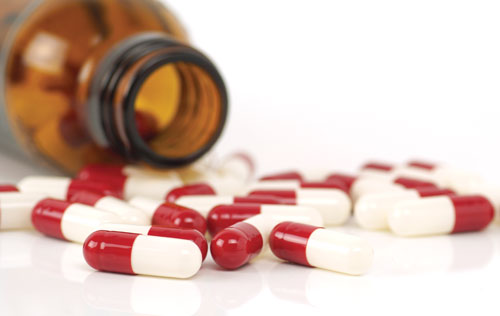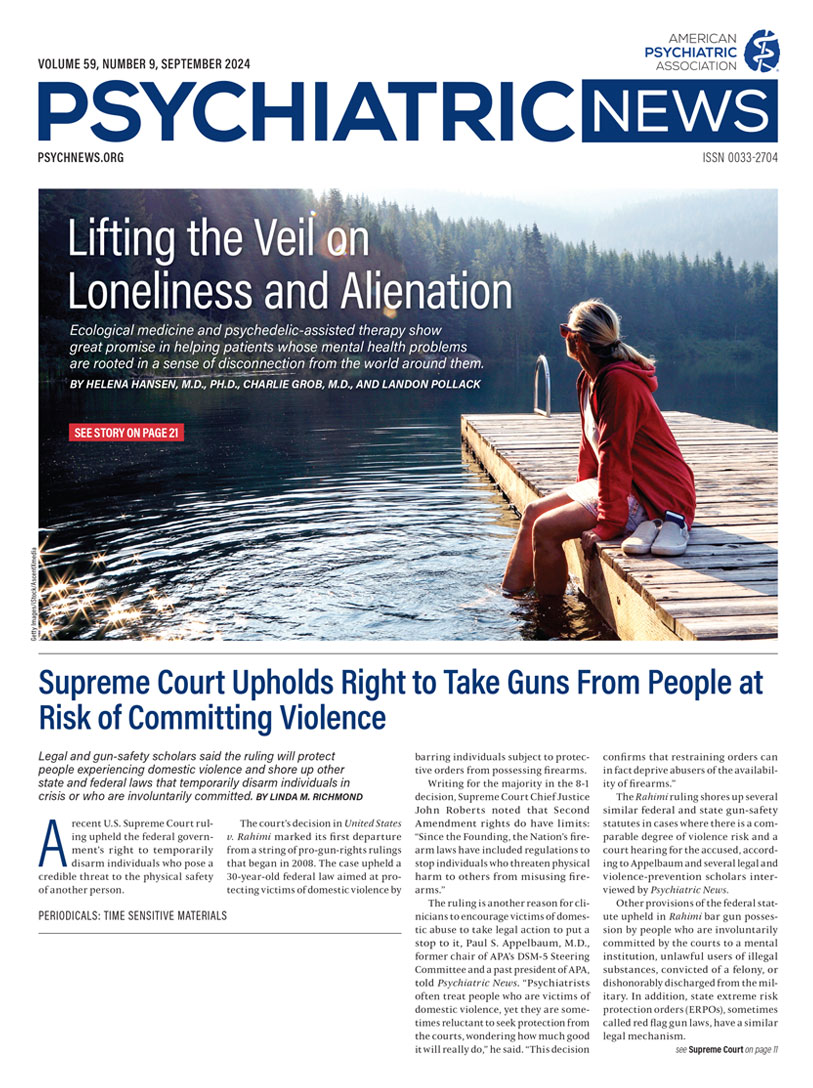Gas station heroin” is one of its more evocative nicknames, but it also goes by Za Za, Neptune’s Fix, and Tianna.
The official name of the substance in question is tianeptine, a drug that is approved as an antidepressant at low doses in some European countries. Meanwhile, in the United States, tianeptine is not approved by the Food and Drug Administration (FDA) for any use—even as it is being sold commercially and used at very high doses as a recreational drug or for falsely labeled health benefits.
The APA Council on Addiction Psychiatry wants psychiatrists to know about tianeptine’s potential for dependence and overdose and to be able to recognize signs of use in their patients and counsel and treat them for addiction. “Recreational misuse of tianeptine at grossly high doses, sometimes up to 3,000 mg in a day, has presented a growing U.S. public health concern,” according to an Assembly Action Paper on “Promoting Public Education About Tianeptine” reviewed by the Council and approved by the APA Assembly in May.
The Opioid That Isn’t
Richard Zhang, M.D., M.A., a child and adolescent psychiatry fellow at Yale University, who co-authored the Assembly paper, told Psychiatric News that tianeptine’s chemical structure resembles that of tricyclic antidepressants, and at doses of 25 to 50 mg per day acts on glutamate receptors and has an antidepressant effect. The drug is marketed for prescription use for depression in some European, Latin American, and Asian countries, according to the action paper.
But in the much higher doses at which the drug is being misused in the U.S., tianeptine can also interact with μ-opioid receptors, leading to opioid-use-like euphoria and potential dependence, said Zhang, who served as 2023-2024 chair of APA’s Assembly Committee of Area Resident-Fellow Members. The action paper grew out of a similar paper Zhang co-authored on kratom—an herbal substance that similarly has opioid- and stimulant-like effects—that was also approved at the May Assembly meeting.
“How do you say opioid without saying opioid?” said Lief Fenno, M.D., Ph.D., chair of the APA Council on Addiction Psychiatry, describing tianeptine’s danger to users in the United States. “If you look in the popular press, there is a skyrocketing number of anecdotes about people purchasing tianeptine, becoming dependent on it, or even overdosing on it. Like kratom and some other opioid mimics, these substances are sold in head shops, gas stations, or the darker areas of the internet.”
Such substances are often sold commercially as herbal supplements or touted as having weight loss or other beneficial health effects. “But at the end of the day,” Fenno said, “they contain exceedingly dangerous substances that act similarly to opioids.”
The use of tianeptine grew exponentially between 2000 and 2017, according to a U.S. Centers for Disease Control and Prevention (CDC)
analysis of exposure calls to poison control centers related to tianeptine and reported to the National Poison Data System (NPDS) during that period. During the first 14 years of the study period (2000 to 2013), NPDS reported a total of 11 tianeptine exposure calls; from 2014 to 2017, there were 207 calls.
Over the course of the 17-year study, poison control centers reported 29 withdrawal-associated calls, with tianeptine linked to 21 of them. The most frequently reported signs and symptoms were agitation, nausea, vomiting, tachycardia, hypertension, diarrhea, tremor, and diaphoresis.
Alert to Signs of Use
In the years since the CDC study, the numbers have kept going up. A spokesperson for America’s Poison Centers, which maintains the NPDS, told Psychiatric News that 389 tianeptine exposures were reported to poison control centers in 2023. As of June 30, there had been 195 tianeptine-related calls to poison centers this year.
Despite the absence of federal regulation, the FDA issued a
warning in 2022 that tianeptine was linked to loss of consciousness, seizures, overdose, and death, and a
warning to consumers in February of this year not to purchase tianeptine products. In January, a bipartisan congressional
letter to FDA Commissioner Robert Califf, M.D., urged the agency to take more immediate action. Several states, including Alabama, Michigan, Mississippi, Tennessee, Georgia, Indiana, Ohio, Florida, and Kentucky, have taken steps to ban or strictly control tianeptine sales, according to the letter.
Also this past February, the Drug Enforcement Agency issued a statement that referenced the CDC statistics, noting: “Amidst the current opioid crisis, this rapid and marked increase in calls to poison control centers related to tianeptine, an opioidlike drug, is of extreme public health concern. These data demonstrate that the abuse of tianeptine is increasing while contributing to the current opioid epidemic.”
Fenno said psychiatrists should be alert to signs of use in their patients and be able to discuss tianeptine using the commercial names by which the product is sold. “A lot of people don’t know about it, but this substance is dangerous and unregulated,” he said. “Psychiatrists need to know their patients may be using it as a supplement or intoxicant and that it has potential for dependence. It acts on opioid receptors, so patients should be getting standard of care for opioid dependence. Patients should also have naloxone, so they can be treated appropriately in case of overdose.” ■


